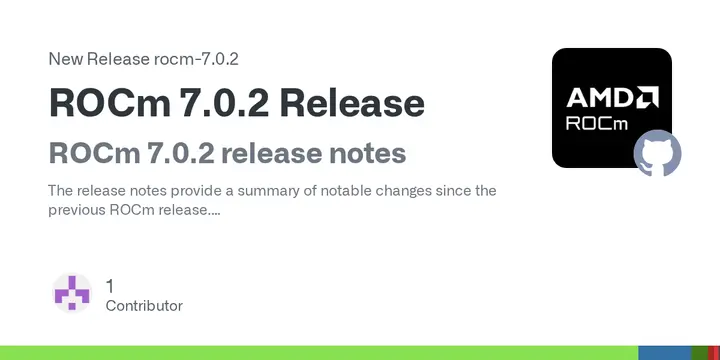The update features notable improvements such as advanced multimedia engine reset capabilities for MI300X GPUs, which enhances system stability and GPU resilience. Users operating on RHEL 10 or Oracle 10 are encouraged to update their AMD GPU Drivers to leverage these enhancements to their fullest potential.
In addition, ROCm 7.0.2 includes support for Retrieval-Augmented Generation (RAG), allowing developers to create AI pipelines that utilize real-time data effectively. The introduction of Gaussian splatting support accelerates 3D rendering on AMD Instinct GPUs, which could greatly benefit applications in various fields, including computer-aided design and medical imaging.
A new toolkit, ROCm Life Science (ROCm-LS), is also part of this release, currently in early access, designed to expedite life science applications leveraging GPU acceleration. This toolkit incorporates essential libraries like hipCIM for image processing and MONAI for high-performance medical AI, making it a valuable resource for researchers.
Further developments include improved compatibility with PyTorch 2.8 and the introduction of FlashInfer and llama.cpp frameworks tailored for large language model applications. These updates significantly enhance the capabilities for those working in advanced areas such as natural language processing and computer vision.
Installation tools have seen refinements, including updates to the ROCm Offline Installer Creator and Runfile Installer, facilitating tailored offline installations for specific distributions. The ROCm documentation has also been upgraded, featuring new tutorials aimed at AI developers, thereby simplifying the onboarding process for new users.
The ROCm platform's adaptability is one of its standout features, as its open-source nature allows developers to seamlessly integrate their applications and harness the optimized performance of AMD GPUs. Continuous updates to libraries and components focus on improving functionality, compatibility, and user experience, although challenges remain with SELinux-enabled distributions that may hinder GPU code debugging.
Looking ahead, the ROCm team has announced plans to discontinue support for certain components, including the ROCm Execution Provider and ROCm SMI, to streamline future developments. Users are advised to prepare for these changes and adapt their projects as new options become available to ensure a smooth transition.
In summary, ROCm 7.0.2 not only introduces significant new features and improvements but also sets the stage for ongoing enhancements in high-performance computing and AI applications, solidifying AMD's commitment to this evolving field
ROCm 7.0.2 released
AMD has released ROCm 7.0.2, an update that adds several features and improves performance on various hardware configurations, operating systems, and software libraries. The release includes support for newer hardware such as the RDNA4 architecture-based AMD Radeon RX 9060 and operating systems like Debian GNU/Linux 13, Oracle Linux 10, and Red Hat Enterprise Linux 10. Key updates also include improved multimedia engine reset features, support for RAG to enhance AI processes, and Gaussian splatting support for quicker 3D rendering on AMD Instinct GPUs. The ROCm platform offers a range of tools and libraries to improve high-performance computing and deep learning applications, with ongoing updates and improvements expected in future releases.


